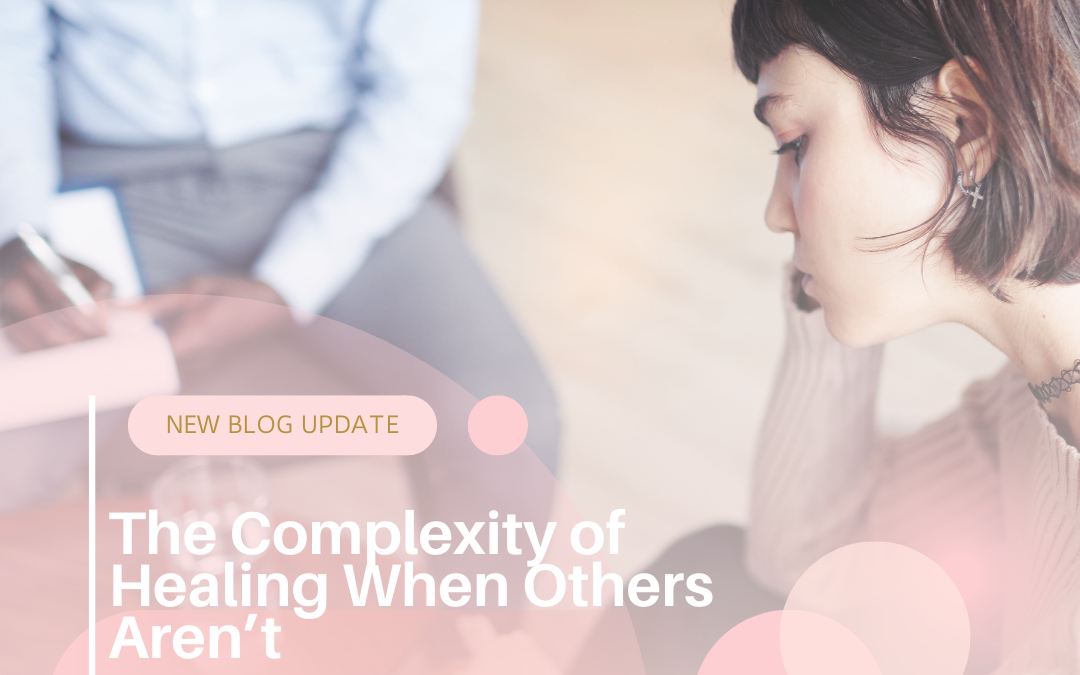Healing is rarely a straightforward path. For many, progress feels like a personal victory—finally breathing easier, sleeping better, setting boundaries, and beginning to feel like yourself again. But what happens when you look around and see that others in your life are still drowning in the pain you’re beginning to rise from?
It’s a quiet, complex burden: healing while others are still hurting.
Whether it’s friends stuck in toxic patterns, family members unwilling to seek help, or communities experiencing systemic trauma, your own growth can sometimes bring up feelings of guilt, isolation, or even resentment. In this blog, we’ll explore why this emotional tension arises and how to navigate it with both compassion and self-respect.
The Guilt of Growing
As you begin to heal, a surprising emotion may surface: guilt. You might wonder:
-
“Why do I get to feel better when others don’t?”
-
“Should I downplay my progress to stay connected?”
-
“Am I abandoning people if I move forward?”
This is especially common if you were once part of a shared struggle—like addiction, abuse, or mental illness—and you’re now choosing a different path. Your healing may unintentionally highlight others’ stagnation or pain. That can feel uncomfortable, even painful. But here’s the truth: your healing doesn’t harm others—it holds the potential to inspire them.
Outgrowing Relationships Without Malice
One of the most painful aspects of healing is realizing that some relationships no longer align with your growth. The people you once vented with, coped with, or relied on emotionally may now feel… disconnected.
That doesn’t mean you don’t love them. It just means your emotional needs, values, or vision have changed. And that’s okay.
But setting boundaries or limiting contact can bring up intense feelings of:
-
Betrayal (“I’m leaving them behind”)
-
Guilt (“I’m supposed to be loyal”)
-
Doubt (“Am I being selfish?”)
Outgrowing people isn’t betrayal. It’s evolution. And while not everyone will understand your journey, staying small for the comfort of others isn’t true connection—it’s self-abandonment.
Holding Compassion Without Losing Yourself
It is possible to honor your own healing while staying compassionate to those who are still in pain. Here’s how:
1. Lead with Empathy, Not Shame
Avoid language that sounds like moral superiority (“I’m doing the work, why aren’t they?”). Instead, acknowledge that healing requires readiness, safety, and sometimes resources that others don’t have access to yet.
2. Share, Don’t Preach
You can talk about your growth without forcing others to follow. Model healthy change through how you live, not how you instruct.
3. Offer Support, Not Rescue
It’s noble to want to help—but you can’t save someone who isn’t ready to be saved. Know the difference between support and enabling. Your job isn’t to carry others—you can walk beside them without losing your footing.
Creating Space for Joy and Progress
Sometimes, healing brings joy—and then the voice in your head whispers, “Should I really feel this good?” Yes, you should.
You are allowed to:
-
Be at peace even when others are at war with themselves
-
Laugh while someone else is still crying
-
Celebrate even if someone else is in crisis
Your joy doesn’t diminish their pain—it adds to the light in the world.
Final Thoughts: Your Healing Is a Revolution
Choosing to heal in a hurting world is one of the most radical, courageous things you can do. It challenges generational cycles, rewrites internal narratives, and raises the bar for what is possible—for yourself and for others.
You don’t owe your suffering to anyone.
You don’t have to dim your light to match someone else’s shadow.
You don’t have to pause your journey until everyone catches up.
Keep going. Your healing is not selfish.
It’s necessary. And it just might be contagious.


Recent Comments